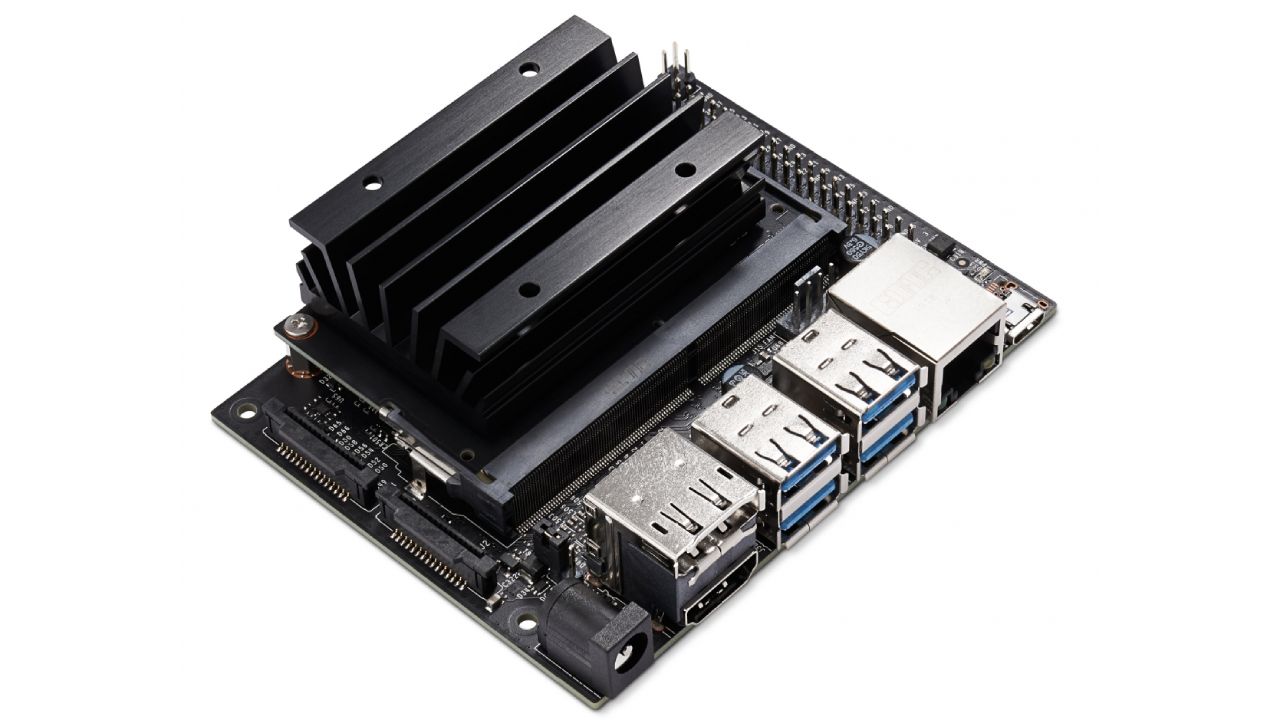Students Build Supercomputer From Jetson Nano Kits
It's quite small
Get Tom's Hardware's best news and in-depth reviews, straight to your inbox.
You are now subscribed
Your newsletter sign-up was successful
Students at Southern Methodist University in Dallas, Texas, have created a ‘baby supercomputer’ by joining together 16 Nvidia Jetson Nano modules, along with a network switch, some power supplies and cooling fans. The resulting cluster, revealed on the Nvdia blog, is small enough to sit on a desk, and will be used as an educational tool.

After receiving a small grant to create the Jetson cluster, it was built from scratch in four months by two students, who also created the acrylic casing, more than 60 of the interconnecting cables, and the power supplies by hand, learning about wire stripping, networking, and laser cutters along the way. (Only one small fire was started.) The computer began life as a collection of Jetson Nano modules spread across a desk, using cardboard boxes as "heatsinks," but was upgraded into the current neat acrylic casing using 3D vector files fed into the laser cutter at the university’s makerspace.
“We started this project to demonstrate the nuts and bolts of what goes into a computer cluster,” said Eric Godat, team lead for research and data science in the internal IT organization at SMU. "Our Nvidia DGX SuperPOD just opened up on campus, so we don’t really need this baby supercomputer to be an actual compute environment,” Godat continued. “But the mini cluster is an effective teaching tool for how all this stuff really works — it lets students experiment with stripping the wires, managing a parallel file system, reimaging cards and deploying cluster software.”
The Raspberry Pi of AI, the Jetson Nano features a 64-bit quad-core Arm CPU and a 128-core Nvidia Maxwell GPU, along with 4GB of RAM and USB, Ethernet, HDMI and M.2 sockets. It has a 40-pin GPIO array too, and usually runs a version of Ubuntu that's specially tailored to its hardware. The software environment for the cluster is still a work in progress, being built using Nvidia Jetpack, and will be used for small-scale machine learning tasks.
The Jetson cluster will be on display at the SC22 supercomputing conference in Dallas, which runs from November 13-18 this year.
Get Tom's Hardware's best news and in-depth reviews, straight to your inbox.

Ian Evenden is a UK-based news writer for Tom’s Hardware US. He’ll write about anything, but stories about Raspberry Pi and DIY robots seem to find their way to him.